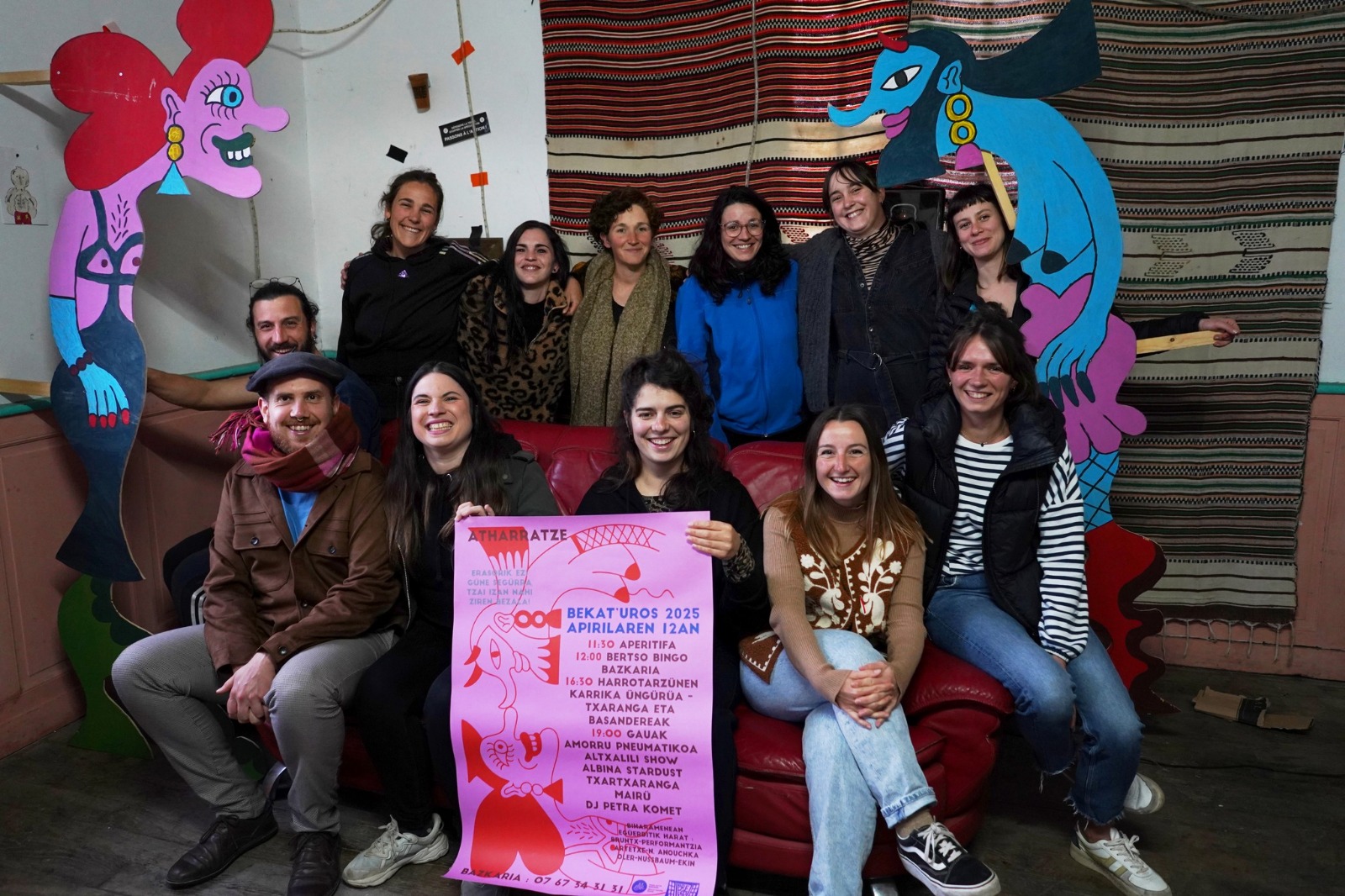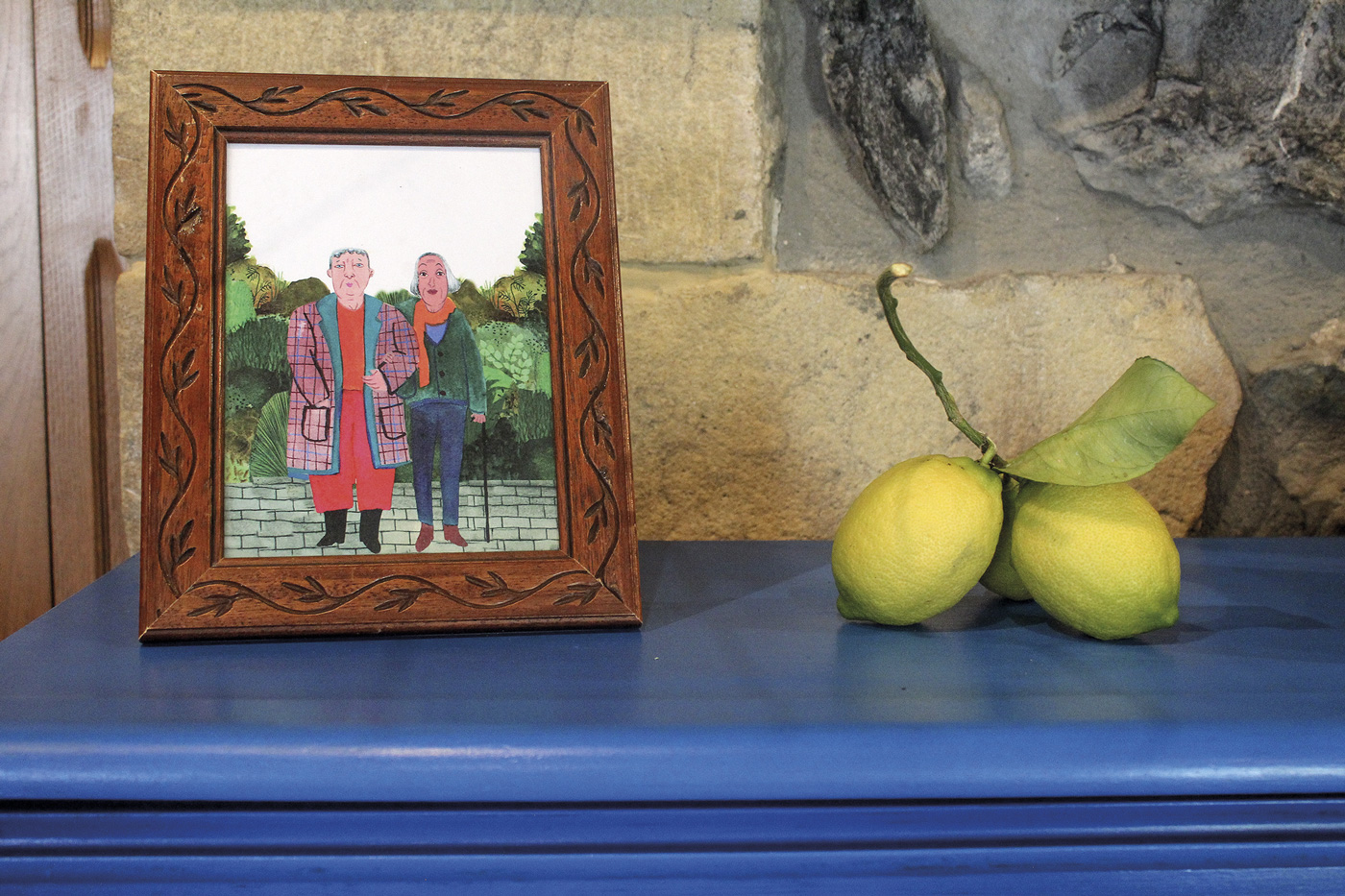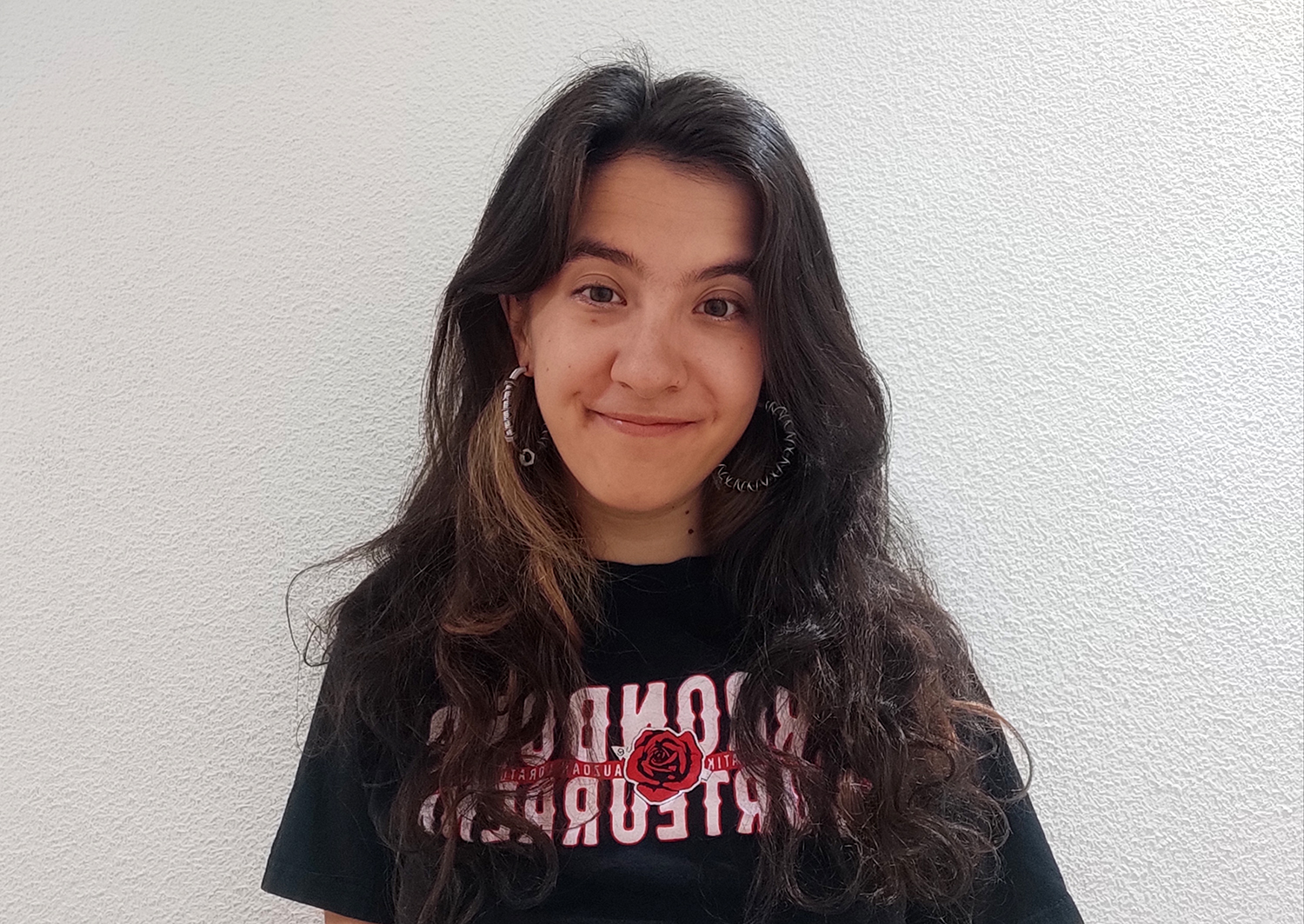Rethinking family models and growth
- When we talk about sexual liberation, we don't just mean our desires, identities and liberation from our bodies. It is also a question of talking about the types of relations that can be at the base of the social structure. What kind of affective relationships are the most valued? Is there the most appropriate way to create a family? What is a family? Is there a chance to raise and educate them in the tribe? What are the possibilities for sexual dissidents to form a family? What structural barriers do we find? Around all these and other questions we met last November 13 at the Izarra House of Culture, at the meeting Families and Growths Outside the Cysheterosis.

Gradually, the glass room of the Izarra House of Culture was filled, around which children and adults played with each other. Between the sounds and cries of the children it took almost two hours to share experiences and reflections.
Maider, Xabi, Nel, Duna, Ana, Lorena, Udane, Unai, Mireia and Jaione have been the protagonists of the “diverse” families that together with the members of Ehgam prepared this program. And they expressed their experiences with dance, drawing or words. The boycotts maternity, the tribal raising of two children between two marico and bolleras, the experience of a trans* man who gave birth to a child, the difficulties for mothers to record their child... Many topical issues this Saturday afternoon, interesting and participative.
The program began with a dance to express the difficulties, doubts and joys that the mother was a mouthful. The attendees were able to enjoy a beautiful and exciting dance through the glass walls. After the dance, the time of the interview came. The colloquium was channeled through the images that appeared on the screen and the doubts and opinions of the attendees could be heard.
The first idea we had was what the family is or how it's understood. The process of growth and education started between the four attendees (two couples) and how they have not had to change their lives for growth. In short, there are four adults involved in the process, which allows that many times growth does not force them to abandon some of the lifestyles or leisure activities they like.
We also talk about the value of words. We should rescue some words that are hijacked, resignifying them, giving them wider meaning. For example, the word family. Or should we invent or conquer new ones? Something similar happened with the wedding issue. Does the affective network serve us as a new word? The exact role of the word father also appeared. Is the role of a man in parenting called a father? Who will designate it? Do you have to be a father or not? For example, we were more proud than proud of their parenthood in the program.
Being a bodily mother is like going into an empty room, where you don't have references or tools to address that motherhood. In the case of a trans parent, there's not even an empty room.
We also talk about the legal insecurity experienced by partner compositions or other relationships that are not a heterosexual couple and how this structural violence, one after the other, puts only obstacles, for example, at the time of registering a child.
Being a Mother
We also talk about the imagery of being a mother and how in this model of society today is the highest model of femininity. What is able to do everything and how to care for it perpetuates feminization. In addition, this, in the heterosexual, core model of the idea of care and growth. Where are the affective networks left? Can't we share the work of care and growth in affective networks and reinforce the idea of community?
The figure of a quiet man who appeared breast-feeding was also projected. And when they asked the attendees what made them feel that image, they threw words like tenderness, love or beauty. Nele expressed the need to see this image before, as the lack of referents leaves you alone. In this sense, it was commented that a blind mother has an image in our imaginary, which already has dozens of recommendations, recommendations and an imaginary that can also be coercive, is not faced with an absolute vacuum in relation to motherhood. She also talked about how being a bollera mother is like going into an empty room, where you don't have any references or tools to address that motherhood. However, in the case of a trans parent, there isn't even an empty room. Because there's nothing, just a vacuum.
For all this, emphasis was placed on the need to think collectively about these different forms of growth in order to disseminate and support imaginaries and support each other.
We are also talking about the genetic relationship and how, above its importance, the importance of growth must be emphasised.
School models
We also had the opportunity to talk about the situation in schools. The young daughter of a pair of chapels who participated mentioned that in school there is a single family model and that not all the existing diversity is shown. In this sense, and following the heterosexualization of relationships, it was commented that people who dedicate themselves to sex education in schools feel they arrive late, because when they are going to do sex education, they have to talk to heterosexual adolescents about the true diversity.
In this sense, it was commented that the attitude of the children towards the theme at school is the one that most worries the attendees. However, more and more girls are immersed in empowerment processes. Another answered that we must stand firm on reactionary attitudes, because it is a reaction that results from the work of the years of feminism and that we must continue in it.
We had the opportunity to enjoy a sincere conversation between mother and daughter and told the experiences of the lesbian mother at school. It was significant that a schoolmate told her that she had learned that her mother was a lesbian. For her, her mother was with another woman and period.
Finally, the difficulties, rhythms and opportunities to reconcile militancy and growth or motherhood with the Lesbofeminist militancy were mentioned and interesting experiences emerged from these types of combinations. For example, Maternidades, one of the founders of the Bibollo network, was present, presenting the network and sharing the fanzine Rucu Rucu edited from it.
This meeting left moments as interesting as exciting. It was a good opportunity to spread the family imagination and dream of a different social organization. Seeing the environment, the desire and the forces that were created, it will not be the first or the last meeting.
* Ehgam Berramestuz initiative
The Leioa School of Education was full of students last Wednesday because Samantha Hudson was coming. She is a transgender Mallorcan artist, singer and influencer born in 1999. The star of the People Singing Encounters had an endless line to give selfies and autographs, and his... [+]
1984an ‘Bizitza Nola Badoan’ lehen poema liburua (Maiatz) argitaratu zuenetik hainbat poema-liburu, narrazio eta eleberri argitaratu ditu Itxaro Borda idazleak. 2024an argitaratu zuen azken lana, ‘Itzalen tektonika’ (SUSA), eta egunero zutabea idazten du... [+]






















